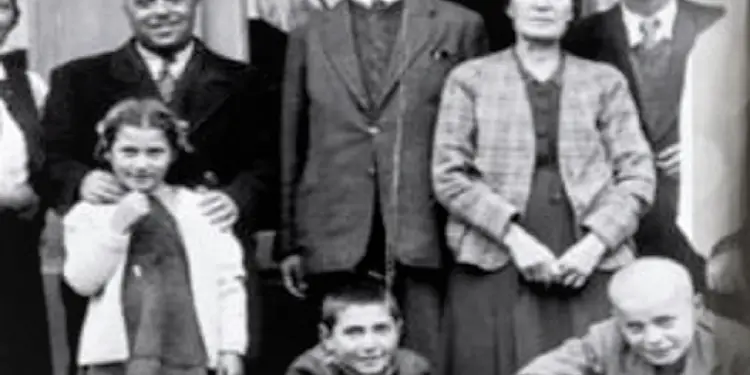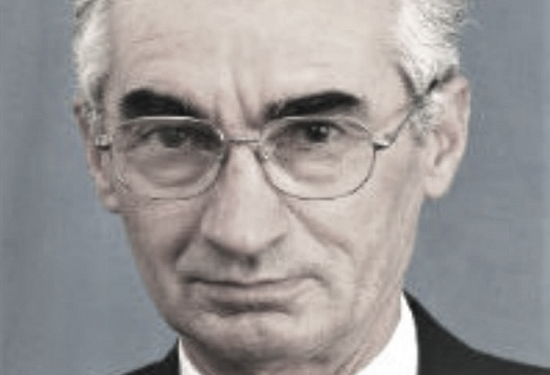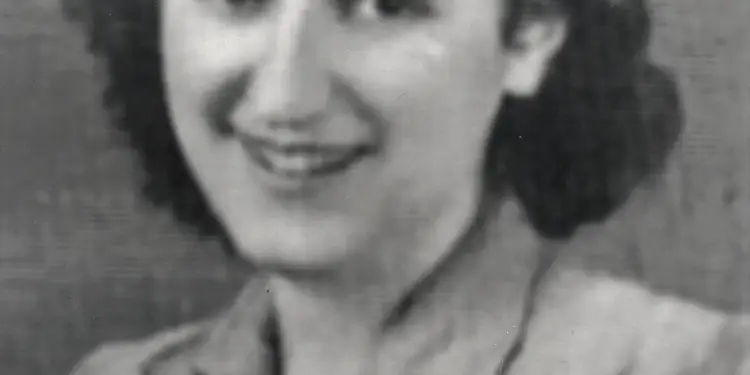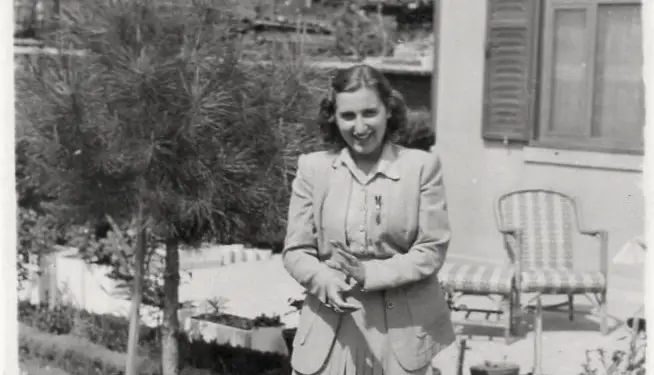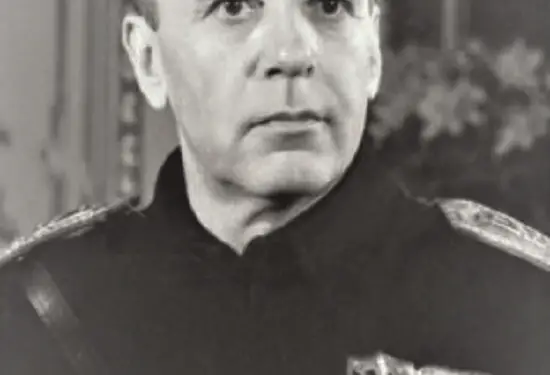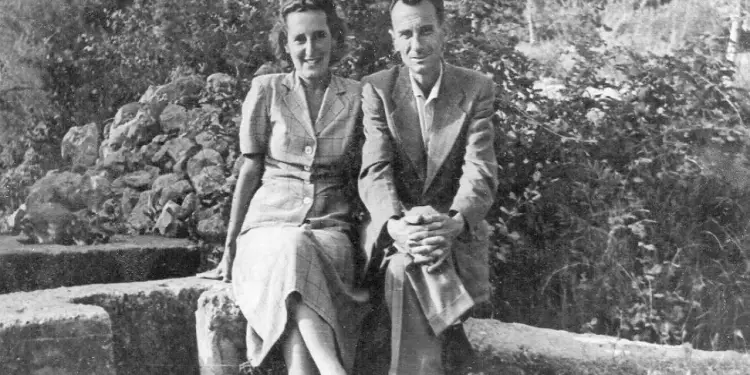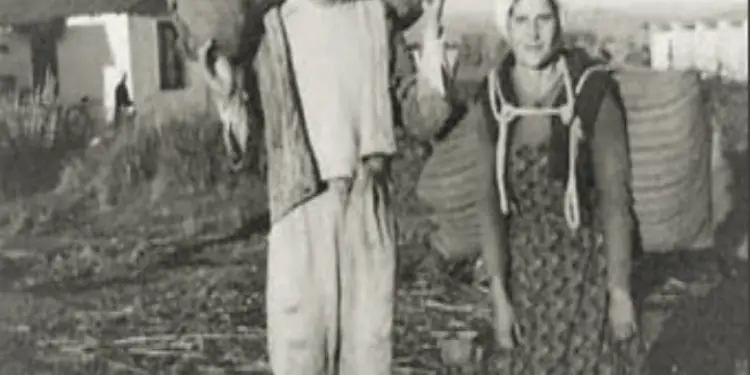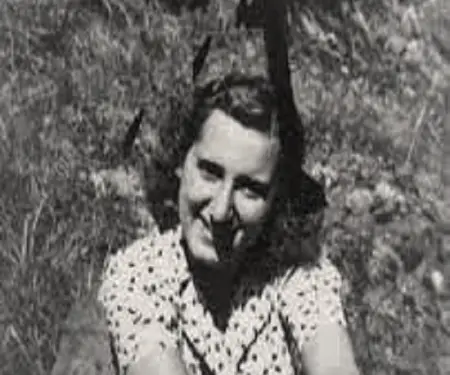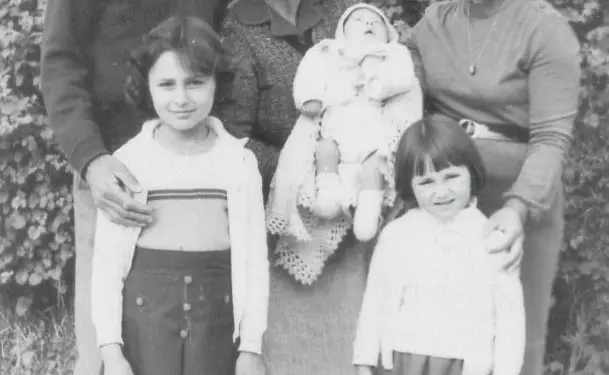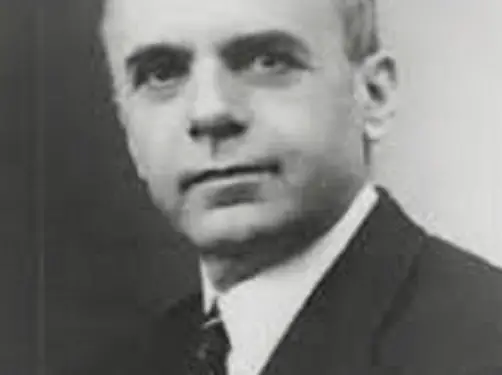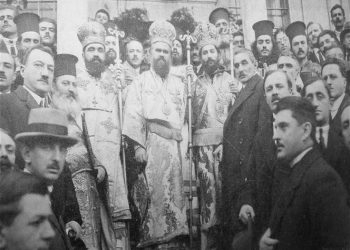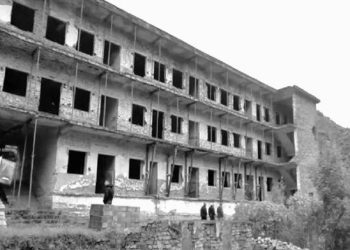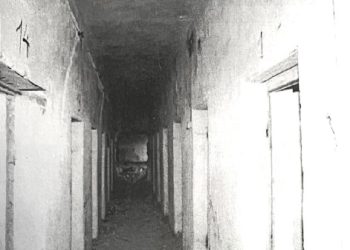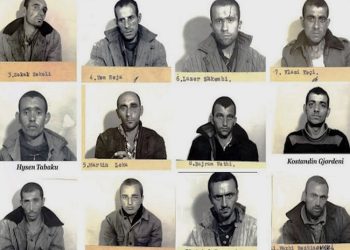By Eugene Merlika
– “It’s up to you to improve the world” –
John Paul II
Memorie.al / strolling down a forest lane of a mountain resort village in the Italian Alps, one clear August morning, the thought struck me and took me back in time. Scenes of events, people and environments that had been folded like the yellowed pages of an old diary in my mind were renewed before my eyes. The past unfolded with familiar faces of friends from childhood, school, work, internment camps, prisons, random acquaintances on trips, on beaches, at death ceremonies, at weddings, in… ! It seemed to me that I had them by my side, that I was talking to them, that we were walking together in this enchanting forest, that we were going to a cable car that would take us to the top of a mountain, where the horizon widened and where the sight was dissolved in these beauties of nature… !
The past, how powerful it always remains in us. Whatever it was, sad or happy, painful or pleasant, it always holds us captive. Every day we talk and think about tomorrow, about the months and years to come, but instinctively, without wanting to, we go back to the past months and years, to the feats and more to the things we could not do, to the hopes and the dreams that we put in the drawers because we were not able to realize them, because we did not live them, because there were no other creatures like us to bring them to life…!
In these moments, when the imagination has united me with hundreds of people who today are scattered in the four corners of my country and the great world, I see myself as the waters of a pond, into which a stone is thrown and the waves form circles rise and expand crashing into the shore. Perhaps the stone was thrown by this beautiful nature, which reminded me of another equally beautiful place where, thirty-three years ago, I served in the military: Martaneshi, Vërvjaka, Black Lake, Kaptina…! The waves of water are like those of memories, of thought, which in this case takes me to school halls, construction sites, fields, city promenades, prison cells, beaches, mining galleries, military units, all those shores where the river of my life flowed full of waves and foam.
In this multitude of scenes, which occupy my brain at this moment, a huge being takes shape and materializes which sums up everything, puts order in my scattered thoughts and asks me, in silence, to talk about it. It is my generation, a bunch of people born in the fourth and fifth decades of the century we are leaving behind. A familiar pain begins to ache in my heart, an early pain, for which the doctor of time never found a cure. It is the pain for my generation, for its fate, for its misfortunes, for its shattered dreams, for its truncated hopes, for its Sisyphean labors gone in vain, for its unknown freedom, for the poverty of his known, for…!
We were born and raised with the air of war. From our parents we inherited a country ruled by a regime rooted in blood and sowing hatred. It was a cast of people, brought by time and the tragedy of the Second World War to the head of the country. So many were grateful to that war, which had given them power over a people with a thousand problems inherited from history, that they never took the word “war” out of their mouths, made it the leitmotif of being alive, the alpha and omega of their life and work.
Our childhood and youth were filled with the most diverse manifestations of this concept, with the most varied inflections and phrases of that name, which was usually accompanied by the adverb against. War against the bourgeoisie, against capitalism, against revisionism, against private property, against self-interest, against foreign ideology, against foreign shows, against religious beliefs, against the “old world”, against the canon and above all against the “class enemy” “internal and external…!
In addition to this lazy kennel of terms, capable of atrophying any human feeling, we also had to learn the term “love”, but not what you find explained in any dictionary of the world. Our love should be something special, boundless, but not for our parents, for the boy or girl who attracted us, for our freedom or rights as people. It should be like this for Marxism-Leninism, for Stalin, for the Labor Party, for proletarian internationalism, for the socialist homeland, for Mao Zedong and above all for the “dear leader” of the party and the people, Enver Hoxha. These two words, as old as the world, the companions of mankind for millennia, synonymous with concepts bastardized and inverted by proponents of dizzying ideas like Eve’s biblical apple, rocked our cradle, accompanied us with the first steps of the child, the toys of the teenager, the fantasies of the young man.
In our childish minds, the world was imagined as an eternal battlefield, where the good and the bad were constantly fighting, where the good had a common name: Bolshevik, Partisan, Communist. The bad guys were always the same: the Germans, the fascists, the ballisticians. Each of us tried to identify with the camp of the good, to feed the hope that one day we would reach the “earthly paradise”, where the unstable sun of communism shone. This was a childish illusion, the truth was something else. It coincided with the idea of the battlefield, but unwittingly, without realizing it, we were participants in this war. We fought with each other, with our classmates at school, with our neighbors, with our relatives.
In schools, the teachers explained to us that the Nazis killed the Jews, the Roma, the Evgitians in the name of the purity of the Aryan race. It was about millions of people, victims of racial hatred. There were a little more than a million of us and we were divided into two: “us” and “them”. “We” were the good ones, the people of the party and in power, while “they” were the bad ones, the “enemies of the class”, the ones who did all the bad things. We should look at each other, not talk to each other, even though we were neighbors, we went to the same school, we lived on the same street, we saw the same sky, we had the same desires, we were the same. race, that we spoke the same language, that we were the same people…!
We should have been in permanent war, in an insidious, treacherous war, because we were born from different parents, who in the so-called “great war against the occupier and traitors” had different opinions and attitudes. We were not born then, but still we carried “faults” on our backs or “merits” on our chests, which remained eternal. In reality, only the “faults” remained immovable, which were transmitted from generation to generation, while the “merits”, in many cases faded, disappeared, and their bearers often ended up in the ranks of “them”, suffering those attitudes, which until then they held with others. This was the mindset that guided our growth, in a country where its implementation created a grim picture of prisons, internment camps, denials of all kinds, racial differences under the name of “class”, insults, violence, to trample.
In this absurd order of ideas, concepts, attitudes and actions, our mind could not develop normally. It was like an unplowed field, in which only thorns and weeds grew. Hatred, mistrust, fear, hypocrisy, hand-wringing were planted and cultivated in it. Our horizon narrowed. We could not perceive the value and power of concepts such as: freedom, tolerance, respect for the other, for opinions different from ours, for the unlimited and limitless ability of man, for his initiative, respect for the foreign world, for culture and progress, for parents, for tradition, for history.
Our world began on November 8, 1941, and each congressional report marked a stage in its development. Our role model was Pavlik Morozov, a child who had sued his father, because he had not submitted the grain to the government, our heroes were Lej Feni, Fuat Çela, Alo Qosja, Shkurte Pal Vata, etc…! What could come out of such a mixture of counter values? We came out, ‘My Crippled Generation’, who did not have the courage to even try to change something, although the world, around us, was changing every day. We only have to unite, to continue our parents’ maddening game of executioner and victim, to applaud every whim and madness of our Nero, every trial where innocent people are punished, every attack against every kind of change for the better outside the communist system, any kind of attack on our spiritual values, even against faith in God.
We didn’t live; we survived like reptiles retreating in search of a sunny corner. We lost the most beautiful years of our youth, digging the mountains and plains with picks because we would make the mountains like the plains. We, the modern slaves of the twentieth century, unlike those of the ancient world, did not have the right to wear our hair as we wished. Pants and skirts should have the sizes determined and approved by the “Pharaoh” and his subordinates. We wrote all our talent and skills to sing to the greatness of the “Sultan”, with verses, with songs, with paintings, with engravings, even carving the mountains so that the names of the duo with five letters each could be seen high from the sky, because our “Sun” was the brightest in the universe.
What happened to us? Are we entirely responsible for what we didn’t do, couldn’t, didn’t or didn’t want to do? Or a historical fatality, much bigger and more powerful than our “suppressed wills”, crushed us mercilessly and we didn’t have the strength to rise? Others gave us the examples: Poles, Hungarians, Czechs had roughly similar histories to us. They fought, organized, stood, and sacrificed to change their lives. They faced the monster and, although they lost, they gained something, not only to have more freedom, but also to leave a mark in the future, in their history. They will be remembered as the generation of the Budapest Uprising, of the Prague Spring, of Solidarnost.
What about us, ‘My generation’, what will we be remembered for? For the hosanna and the end of the endless chain of crimes of a regime beyond all human dimensions? For our proverbial fear, which had set us the goal of conversations within the lines of a football field? For not having the courage and the courage to ask for the most necessary things: the right to think with our brains, to read the books we liked, to listen to the music we liked, to learn the language we liked, to not feel eavesdropped, followed, spied on at any moment?
What did the educated, the intellectuals of my generation do to change this unusual situation a little, to make others aware, when the country was supposed to be governed by former drivers, former coachmen, former electricians, even former cow milkers (without putting doubt respect for crafts) in the late twentieth century? In other countries, it was the Petefi, Karta 77, Solzhenitsyn, Pasternak and Zakarov clubs that raised their voices and showed the world the terrifying truth of “real socialism”.
The sagas about commissars and cantatas about Enver Hoxha’s party were not over here. The writers of our generation who, with their talent, raised immortal literary monuments to communism and the Mayakovskian duo Parti-Enver, used only sarcasm for the victims of their violence, mocked by presenting them as weak beings, without dignity and without personality. While they had shown their personality, standing with weapons in the mountains of Albania, in defense of the lost freedom of their people. Even today, after ten years of “anti-communist” lectures, none of them finds the inspiration to write something about Vlocishti, Orman-Pojani, Tepelena, Spači, Qafa e Bari…!
Are we even today able to measure our weaknesses, with a past in which very few of us had the courage to sacrifice ourselves to tell the truth? Their names, still unknown today for the most part, are the lifelines for ‘Our Generation’, they are the stars that illuminate the barren sky of a past that, the more time passes, the more it makes us blush. Let us show a modicum of honesty and erect a monument to these people, these comrades of ours, who knew they would die or rot in prisons, but did not hesitate to speak the truth and openly accuse the regime that was martyring them a people prejudicing its development and well-being.
In these monuments there will be a vase for fresh flowers; maybe they will be the only places in which “Our Generation” deserves flowers. Together with the flowers we should ask them and forgive them, at the time they were terrorized, we did not even have the courage to admire them, but we called them irresponsible, because an ancient proverb of ours said: hit the wall with your head”. We made the philosophy of this proverb the leitmotif of our miserable existence, because through it we justified our weaknesses, our voluntary or forced submission to evil.
“In the middle of the walk of our life, I found myself in a dark forest…”, this is how one of the masterpieces of world literature begins. If we paraphrase these verses, but in the opposite direction, it seems to me that it brings the idea of that great change that came into our lives in 1991, one year later than in all other countries. This delay proved our backwardness compared to others. While others had set as their goal the reconstruction of society, through the outside view, we shed tears for the death of the tyrant and spent forty million dollars to erect his pyramid in the middle of Tirana.
While others opened the borders and allowed their citizens to seek their fortunes in the free world, we were stunned by scenes of Homeric vandalism dragging the corpses of young people whose only “fault” was that they had tried to cross the border. While others, aware of the inevitable failure of the communist system, tried by all means to benefit from the experience and help of the countries of the rest of Europe, we turned back the offer of the German Strauss, we asked for loans and weapons…”! We are neither Easy nor West”, declared the Byzantine President of the Albanian State, who was “noted” for the “modernization” of the country through bunches and walnuts.
From the distance of years, the absurdity in which we lived is more clearly visible. Any epithet to characterize him is insufficient. At the end of the 20th century, people who queued at midnight and waited until the morning to get a liter of milk, I believe, did not even exist in the poorest country in Africa. We coexisted with the extreme poverty of our market, with Article 55 and ten-year internments, with attacks against television antennas and against the “excessive” birds of the peasants, with “revolutionary” unmaskings in front of collectives, anxiety in front of every Security employee; it seemed to us that everything was normal. We were so accustomed to evil, so much had entered into our marrow that our reason was darkened and our senses dulled.
Thus we reached the year of great change, for which we again remained indebted to history and our conscience. It took the momentum and strength of the young people of Shkodra, Kavaja, Tirana, University students, etc., that is, of another generation, our sons, to give the last punch to a corpse that was dying, but that was trying to stand changed masks. But that youth, who got stuck in the hunger strikes in the city of Studenti, had neither the preparation nor the experience to take over the leadership of a new State, in a catastrophic state and on a path untrodden before. The transitional period from one failed system to another, which had given sufficient evidence of results and sustainability, in developed and free nations, would be administered again by us.
It was the proof of the truth, the last occasion that time, like on a silver platter, served us to improve our image, to correct our mistakes, to break away from an inglorious past. It was a heavy burden, but also a very noble and beautiful goal: to recover our Motherland, to finally free it from the chains of communism and its consequences, from the lack of freedoms, from poverty, from detachment from the world, from the proverbial backwardness , from violence, lies, infidelity and crime institutionalized in power. We had to raise hope in a better future, to start the slow, difficult but sure journey towards a common objective with many other peoples, towards participation in the European Community. Memorie.al
The next issue follows




